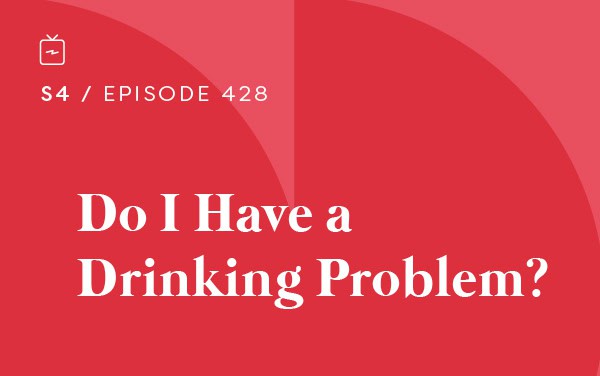
by Kris Oyen | May 1, 2023 | Podcast
Podcast: Play in new window | Download
Subscribe to the Recovery Elevator Podcast Apple Podcasts | | More
Episode 428 – Do I have a Drinking Problem?
Today we have Lauren, she is 54 from Rochester NY, and took her last drink on November 19, 2022.
Shout out to Ty with 15 YEARS alcohol free! Thank you for all you do for RE!
Shout out to Bradley from south Denver with 3 days alcohol free! Great job!
Café RE is a private online unsearchable recovery community. Get accountable and be the best version of you. Together is always better! Use promo code OPPORTUNITY to waive the setup fee.
[03:23] Intro summary:
In the past Paul has talked about the worst place a person can be with a drinking problem is in limbo (episode 417). But how do we find out if we actually have a problem so we can get out of that space?
There is a test listed in the DSM-5 to determine if we have a drinking problem or not. There are 11 questions, and you must meet two of them within the past 12 months to have what is called Alcohol Use Disorder. It’s not hard to determine if you have a drinking problem based on that test.
But at the end of the day, it can be as simple as if you question if you have a drinking problem, you just answered your own question.
Better Help: www.betterhelp.com/elevator – 10% off your first month. #sponsored
[12:36] Kris introduces Lauren:
Lauren has been sober almost 4 months at the time of recording. She lives in Rochester New York, she is married, has two adult children, one granddaughter, has pets and owns her own business helping the elderly. She enjoys time outside, crafting (currently diamond painting), reading and learning new things.
Lauren was always fascinated with alcohol, but it wasn’t prevalent in her immediate family. When she was 16, she was able to purchase alcohol for her and her friends. She had a lot of fun and thought it was cool. She chose the college based on their drinking culture; she drank heavily but still did well in school. After college she got married, had two kids and a successful job. She drank the same as other parents around her, so she felt that was normal. She was able to abstain when she had her children and feels her drinking was more or less recreational for a long time.
Over the years Lauren hadn’t really tried to quit drinking. She would make a halfhearted attempt at Dry January, but it didn’t last. She didn’t think it had anything to do with being addicted. She feels that everyone else saw signs that her drinking was a problem, but she wasn’t aware of it.
After going on a very long-awaited vacation in 2022, Lauren says she had a hard time coming back to regular life and the stressors were magnified. Soon after, she drunkenly alienated a friend on Facebook, and it really impacted her when the friendship ended. She started drinking to escape everything that was bothering her. Lauren had a scare during her third blackout in eight days and decided to go to the doctor where she told them everything. She was sent to an outpatient program to start the next day.
She has found a lot of tools and inspiration through the outpatient program. Lauren says AA didn’t resonate with her, but she does do SMART recovery online which she enjoys. Connecting with others has been a great resource for Lauren as well. She views her drinking and recovery as just part of her, she doesn’t feel it defines her. Lauren recognizes that she is happier and communicate better with her husband. Her family is relieved and proud of her for going into recovery.
[57:20] Outro:
Spring is here! And with seasonal changes come new challenges. Kris feels that it is a chance for him to make sure he has his accountability in place and has a plan when it comes to spring and more outdoor events. Don’t stress about upcoming events, simply be aware of what is out there. Set yourself up to enjoy the weather and reach your alcohol-free goals.
Recovery Elevator YouTube
Sobriety Tracker iTunes
Recovery Elevator
We’re the only ones that can do this, but we don’t have to do it alone.
I love you guys.
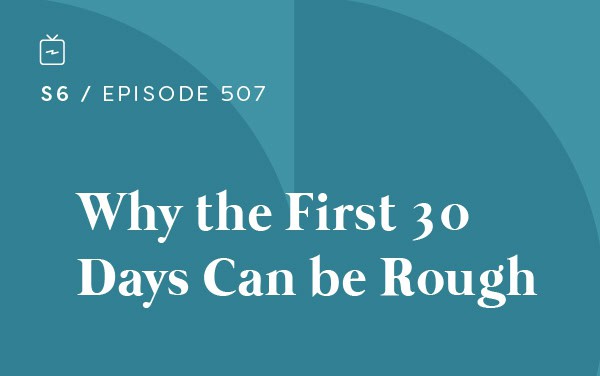
by Kris Oyen | Nov 4, 2024 | Podcast
Podcast: Play in new window | Download
Subscribe to the Recovery Elevator Podcast Apple Podcasts | | More
Episode 507 – Why the First 30 Days Can be Rough
Today we have Jason. He is 56 years old and from Minneapolis, MN. He took his last drink on December 31st, 2021.
Sponsors for this episode:
Better Help – code ELEVATOR for 10% off of your first month
[01:06] Intro:
In today’s episode you are going to hear Jason say that he doesn’t identify as an alcoholic. How many alcoholics do you think have been interviewed on the podcast? Paul says the answer is zero.
Zero because whenever people hear the word alcoholic, the first things that come to mind are homeless, living under a bridge, brown paper bag. Zero guests have fit this description.
Studies show that only 5% of alcoholics are actually homeless, living under a bridge, etc. However we are all walking the same path regardless of how far it takes us.
It’s never too late to get help, and we’ve got your back. The real villain here is alcohol, not the addict. In 2024, you can be alcohol-free, you can be sober, you can be sober curious, you can be an alcoholic in recovery. At the end of the day it’s all about getting honest with yourself.
[04:16] More thoughts from Paul:
Drinking can be challenging in the first 30 days. Paul shares with us a piece about this that uses an analogy comparing our brain and neurotransmitters to toy boxes and toys.
During recovery, our brain is resetting itelf now that the alcohol is halted. This will take time. A couple of week to a couple of months. Go slow, be kind to yourself and let the body heal. Your part is not drinking, and the universe solves the other part which is time.
[07:36] Paul introduces Jason:
Jason has lived in Minnesota all of his lfe, currently in Minneapolis. He is married with two sons, 14 and 12. He works in sales. Jason says for fun, he is getting into golf and he is a pilot who enjoys flying for fun as well as for business.
Jason says he had his first drink as a junior in high school. It wasn’t a remarkable event but he ended up becoming a typical drinker: parties and weekends, etc. He got married when he was 21 to his first wife, and she did not drink. Therefore Jason didn’t drink much during his 20s. The company he worked in sales for, had a big drinking culture that Jason started to get more involved in. Around the same time his marriage wasn’t working out and he found himself divorced and drinking more often afterwards. At the time it didn’t feel out of control although in hindsight Jason feels it was excessive – almost daily and every weekend complete with hangovers.
In his 40s Jason met his current wife who is a social drinker. His drinking continued, but he did begin to question it. He began to try a lot of methods of moderations, some of them worked for him but it became exhausting after doing it for about five years. On December 17th of 2021, he had decided he was going to quit. He says he drank a lot for the first week or so after that as a reminder to himself of how bad it was.
On New Year’s Eve, Jason had two beers and ended up dumping out half of his third. He was done. Jason said the first month went well and the biggest thing he missed was having something to look forward to. Once he made the decision it wasn’t that hard for Jason.
Jason shares that he read a lot and listened to podcasts which really helped him. He mentions the book Almost Alcoholic which helped him identify that he was in the middle ground with his drinking. Jason has had no desire to return to drinking and his cravings were few and far between over the last nearly three years. Going forward, Jason wants to find more hobbies and things he enjoys doing with his kids. He enjoys the subtle calm that is in his life now.
Jason’s parting piece of guidance: you don’t have to identify as an alcoholic for quitting to be the best option for you.
Recovery Elevator
We took the elevator down, we got to take the stairs back up.
I love you guys.
We can do this.
Café RE – promo code OPPORTUNITY waives the set up fee
RE merch
Recovery Elevator YouTube
Sobriety Tracker iTunes
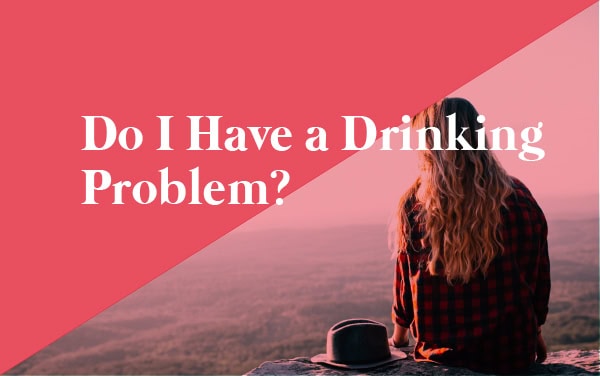
by Kerri MacFarlane | May 15, 2023 | Alcohol Free, Blog, Helpful Tips, Resources
Today is the day! Today is the day we are going to find out if you have a drinking problem…or not. Are you ready?
For Paul, when it finally sunk in that he did indeed have a drinking problem (and a good one at that!) two things happened.
First…he was like, “Oh F&#K!”
Then…immediately after, as this truth spread into his body, to his bones, to his conscious, his unconscious, to the heart, to the liver, something neat happened. An incredible amount of energy was instantly liberated.
For two reasons.
- The stigma or label of an alcoholic didn’t change who he was. He was still alive.
- But more importantly…all the energy, the incessant thinking he had of…
- Do I drink, or not?
- Do I have a problem, or not?
- How am I going to control my next session of drinking?
- How am I going to hide it?
- Let’s do our best not to black out before 8 pm.
- Do I have enough shitty box wine back home?
- Let’s not let people know we’ve already had 9 drinks before meeting up at the bar.
ALL of that went away instantly.
In fact the worst place a person can be with a drinking problem is in limbo. The do I or don’t I phase. (Paul covers this in Episode 417).
So for this diagnostic, we are going to use the test listed in the DSM 5, or the diagnostically statical manual which is what most psychologists and/or therapists have somewhere on their shelves.
There’s 11 YES or NO questions. If you answer YES to 2 of the questions, if you meet 2 of the 11 criteria, within the past 12 months, they call it an Alcohol Use Disorder.
THE TEST
- Do you sometimes have difficulty controlling how much you drink or for how long you drink alcohol?
- Have you made unsuccessful attempts to cut down your drinking?
- Do you sometimes spend a significant amount of time drinking or recovering from drinking?
- Has your alcohol use had any negative consequences at home, school, or work? (Have you ever lost time off work because of your drinking?)
- Has your alcohol use had any negative consequences to your relationships or social life? (Have you ever concealed how much you drink? Has anyone ever commented on your drinking?)
- Have you continued to use despite any negative consequences?
- Have you put off things or neglected to do things because of your alcohol use? (Have you ever disappointed your family or friends? Have you ever missed a family event?)
- Do you occasionally have strong cravings for alcohol?
- Has your tolerance for alcohol increased? Are you able to drink more than you did before?
- Have you experienced withdrawal symptoms the next day after drinking? (Have you ever been shaky or sweaty that evening or the next day?)
- Has your alcohol use led to any dangerous situations? (Have you ever been charged with impaired driving?)
Paul has always strived to be a good student, and was “happy” to report a score of 100%. 11/11. For shits and giggles, let’s’ cover what it means if you didn’t ace this like he did.
WHAT IT ALL MEANS
The presence of at least two of these symptoms means you have an AUD. If you have two to three symptoms, it’s considered mild; four to five symptoms is considered moderate; six or more symptoms is considered severe. (If you don’t fall into the severe category, a mild diagnosis can still warrant concern, as it may be the start of a larger problem.)
A couple things before we wrap this up. If you have a drinking problem, life isn’t over…in fact, it’s just beginning.
Some of you may have just learned you have a drinking problem. If this is devastating to you, go to Episode 411 where Paul talks about the grateful alcoholic.
Paul had one more bit of info in his notes from Episode 428 If you find yourself listening to a sobriety podcast (or reading this blog), and you’re not a therapist, a doctor, or listening so that you can support a loved one, then YOU have a drinking problem. If you question whether or not you have a drinking problem, you just answered that question. The bigger question is…what are you going to do about it?
***Taken from Recovery Elevator Podcast, Episode 428, host Paul Churchill***
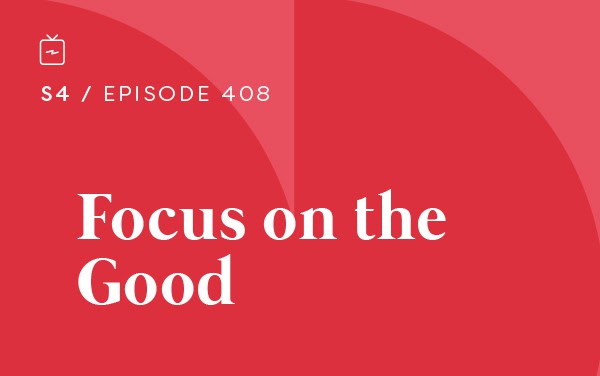
by Kris Oyen | Dec 12, 2022 | Podcast
Podcast: Play in new window | Download
Subscribe to the Recovery Elevator Podcast Apple Podcasts | | More
Episode 408 – Focus on the Good
Today we have Bret, 42, from Fort Lauderdale, Florida and he took his last drink on September 17th, 2022.
Registration for REStore is now open! https://www.recoveryelevator.com/restore/
Exact Nature: https://exactnature.com/RE20
Highlights from Paul:
Paul urges us to focus on the good. There is plenty of bad news out there but ruminating on issues that don’t directly affect us can be detrimental. While suffering is part of the human condition, there is always something to be thankful for. He says that it is on the super challenging days where our recovery work is so important.
Like Odette said in the newsletter recently – “watch our thoughts – if a thought isn’t inline with your new alcohol-free life – let it go”.
Author Jay Shetty in his book Think Like a Monk classifies thoughts as a seed or a weed. If it’s a weed, let it go, if it’s a seed, water it and let it grow.
Manifestation is the mind’s version of The Golden Rule, which is when you treat others with respect, you will gain respect back. With your mind it’s the same thing. If you work towards focusing on the good, then eventually your outer reality will match up.
Paul’s take on “character defects” is that we should be aware and make intentions to correct them, but to not get stuck ruminating on them. If we focus on our weaknesses, it is hard to let our positive personality traits thrive.
Better Help: www.betterhelp.com/elevator – 10% off your first month. #sponsored
[10:51] Kris introduces Bret
Bret is at 66 days sober and feeling cautiously optimistic.
He’s 42 years old, he was raised in Utah but lives in Fort Lauderdale now. He has been with his partner for 17 years, and they have two dogs and a cat. He likes to cook, garden and is a property appraiser.
Bret’s parents divorced when he was very young, and he watched his older siblings stress their mom out with their drinking and swore he would never do it.
Growing up gay was a struggle but when he went to college he started going to bars and found his community and felt like he belonged. He was able to drink and successfully go to school and work. His drinking was on par with everyone else, so he didn’t feel he had a problem.
He moved to Fort Lauderdale in his 20’s and found community in the bar scene. The party never ended which normalized his drinking for him. He was still able to work and function fine and never had any major consequences as he was away from family and only interacted with people that drank like he did.
His drinking started to slow down in his 30’s. They went out less and drank more at home while being caretakers for his mother-in-law.
Bret was the bartender for he and his partner and gradually started drinking earlier and the pours would get heavier. He tried to moderate and create rules, but he would always break them and eventually started hiding the bottles.
COVID and a lot of external factors led to Bret trying to cope with alcohol. It was when his husband confronted him about his hidden bottles that he finally felt relief – he feels he wouldn’t have been able to admit he had a problem had it not been for that. He went to his doctor, and they mentioned an IOP program that Bret got into as soon as he could.
Through his IOP and joining Café RE he feels he is starting to figure out what led him down the path to addiction. He enjoys attending RE courses and chats and plans to attend the IOP after care to help continue his progress.
Book mentioned by Kris Tribe by Sebastian Junger
[48:33] Kris’ summary:
A common theme in recovery is loneliness. We felt loneliness while we were drinking, and we also tend to feel alone in recovery. Finding people and community that understands is so important, especially with the holidays coming up
Resources
Connect with Cafe RE – Use the promo code OPPORTUNITY to waive the set-up fee.
Recovery Elevator YouTube – Subscribe here!
Sobriety Tracker iTunes
We’re the only ones that can do this, RE
But we don’t have to do it alone.
I love you guys.
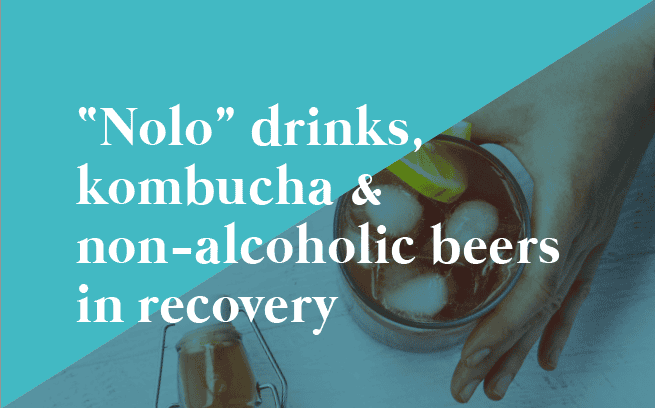
by Paul Churchill | Mar 17, 2020 | Helpful Tips, Resources, The first Year
In this article, I’m going to cover what a “Nolo” drink is, talk about NA (non-alcoholic) beers and kombucha. I’m also going to give my recommendation if you should stay away from these drinks or not since some of them do contain trace amounts of alcohol.
Side note – I feel more influencers, bloggers, podcasters need to cover controversial topics in recovery. Should we avoid NA beers that still contain small amounts of alcohol, does cannabis plays in recovery, and where does plant medicines such as ayahuasca, psilocybin, and ibogaine fit in recovery?
In episode 170, I came out about my experience with ayahuasca despite knowing I would face some intense criticism, which I did. I still feel it’s an incredibly powerful resource, and not sharing it with the audience wouldn’t be true to my mission.
Recently I heard from a blogger in this space who tried ayahuasca for the first time and they said it was the most powerful resource they have come across. I then said, “wow, I’m so happy with you, shoot me the link when you share your experience with the audience, I’m excited to read about it.” They responded with, I don’t have any plans about going public with it. I didn’t answer back, but my inner response was…. Weak. But I get it, I’m sure I’ll get some flack about the position I take with kombucha and non- alcoholic beers.
Speaking of Ayahuasca, I’m hoping to get dates set up for another trip to Rythmia in Costa Rica for later this year or early next. Email me a paul@recoveryelevator.com if you’re interested in joining.
As you may know, I have a book titled Alcohol is Shit, so it may come as a surprise for me to admit, there are some excellent uses for alcohol.
What is alcohol good for?
1. It does have a place in the medical field. It does a great job of killing bacteria and sterilizing things.
2. It’s a highly flammable fuel. It can power a car, a train, or a rocket.
Apart from that, alcohol is shit. People are waking up to the fact alcohol is a class 1 carcinogen, and ingesting the poison can cause significant havoc on internal bodily systems. So a trend is emerging. People are drinking less alcohol. Especially younger folks. Also, consumers are switching to more non or low alcohol content drinks.
People in masses are starting to recognize that alcohol kills 88,000 people per year in just the US alone, causes ulcers, sexual problems, Vitamin B deficiency, apathy, gastritis, malnutrition, nerve damage, liver disease, alcohol poisoning, acute making an ass out of yourself disorder, and a barrage of other things that nobody wants.
People are consuming less alcohol
Sales of no or low alcohol beer (this is where the term “nolo” comes from) is up 30% since 2016. This trend is especially popular with 18-24 year olds. Another fantastic statistic with this age group is that the number of 18-24-year-olds who report they don’t drink at all, increased by 6% last year alone, to 23% in total. Wow, you get a lot of flack millennials, but good on you.
According to the craft brewers’ trade organization, “Nolo” alcohol is set to be one of the driving trends of 2020.
The report is forecasting that no alcohol, low alcohol, and “free-from” beers are set to be one of the fastest-growing parts of the market in 2020, with under 35s choosing low alcohol versions of drinks for a quiet night in or to accompany meals.
Consumers are more conscious of their physical and mental health than ever, and this has driven the fall in alcohol consumption, especially among young people.
Here’s another promising figure – Growth in beer sales is slowing, with total beer sales in 2019 rising by 1.1%, compared with 2.6% growth a year earlier. And The report also indicated a slight increase in the overall number of people who never drink alcohol, with 17% saying they were teetotalers, compared to 16% a year earlier. That’s roughly 3.5 million more people who don’t drink.
I share this with you in hopes of reminding you that you’re not alone. That more people than ever are questioning the role that alcohol is playing in their lives. People are taking addiction seriously and recognize it’s not something that younger people even want to mess with. When millennials say “Yolo” they aren’t including alcohol addiction.
People, just like myself and you, are consciously making the decision to not drink something that will make you less conscious, less alive, and less vibrant. I choose, and I know you do as well, vitality.
NA Beers
Okay, let’s cover non- alcoholic beer. Legally, they can market it as non-alcoholic if it contains less than .5% of alcohol. So, non-alcoholic beer isn’t correct since it contains alcohol. Thank you, FDA. And you might need to ditch the booze if you just calculated how many NA beers you’ll need to drink to relive the glory days. Now, good on you Heineken and UK Based Smashed Lager for making a true 0.0 NA beer.
Now before I give you my opinion, my stance on NA beers, lets first cover why you want to drink an NA beer. Is it the taste? That there are small amounts of alcohol? To blend in? To not be asked why you aren’t drinking? Personally, I never drank beer, wine, or hard liquor for the taste. I drank for effect. I can think of about 74 other drinks that taste significantly better than NA beers, all of which don’t contain alcohol.
Soda water, with a splash of cranberry and a lime wedge, is at the top of the list. Another one is called the “Dustimosa.” You take a couple of sips out of a La Croix, or Buble can, and then fill back up with cranberry, orange, or grapefruit juice.
This is how I treat NA beers. I don’t drink them. Not because I don’t want to flirt with the idea of trace alcohol amounts in my system, but I prefer the taste of other beverages. Now there have been several times when someone hosts a party, and they get me a six-pack of NA beers. Out of generosity, I’ll always have 1. One time, someone got me and my friend, Dusty, he was interviewed in episode 206, Busch NA’s to play flip cup with everyone so we’d feel included.
My stance on NA beers, unless it’s a true 0.0% – stay away. You can find better tasting alternatives, and you don’t want to rattle the cage. It’s not worth it. I once heard a story from a guy who’s wife only allowed him to have NA beers in the house. So each night, he would go into the garage and drink 25-30 NA beers…
Again, my unequivocal stance is, stay away from NA beers that contain trace amounts of alcohol. If you end up having all six beers in under an hour, there’s a good chance you’ll feel it, and crave more.
Kombucha
Now let’s cover kombucha. What is kombucha? And why is it so popular in the US right now? According to Kombucha Brewers International, kombucha is a fermented tea beverage that’s made by adding a symbiotic culture of bacteria and yeast (SCOBY). This solution of tea and sugar produces various compounds, including alcohol and acetic acid, the primary flavor of vinegar.
Kombucha helps support healthy liver function and assists the liver in the detoxification process by making fat-soluble toxins water-soluble. A recent study found recovering alcoholics with higher gut bacteria diversity were more successful at staying sober. There is a strong gut-brain connection, and drinking kombucha strengthens that connection by increasing the number of healthy gut bacteria. 80% of serotonin is created in the gut when healthy gut bacteria and function are present.
I also want to mention, if you had a sandwich or burger for lunch today, you most likely had more alcohol than a Kombucha. Burger rolls have almost 1.3% alcohol, and a ripe banana or pear has about .4% alcohol. How far down do you want to draw this line in the sand?
With kombucha, my take, my stance, my opinion is… Have a kombucha for lunch. Greenlight. But make sure, if you’re at a kombucha brewery, it’s less than .5% or ideally 0.0%. I feel the health benefits outweigh the risks with a kombucha. Plus, for some reason, the thought of chugging 12 kombuchas at lunch makes my stomach stir.
What sometimes sneaks up on me with kombucha is the caffeine. If I have one for dinner, it usually keeps me up at night. So keep that in mind.
To go a little deeper with this article, the overarching problem isn’t alcohol. At first, it is when we are physically addicted. But after it’s been out of the system for a while, it’s about finding healthier ways to regulate inner discomfort without an external substance like wine, beer, spirits sex, shopping gambling, or kombucha. Awareness of what’s happening internally is significantly more important than avoiding kombucha.







